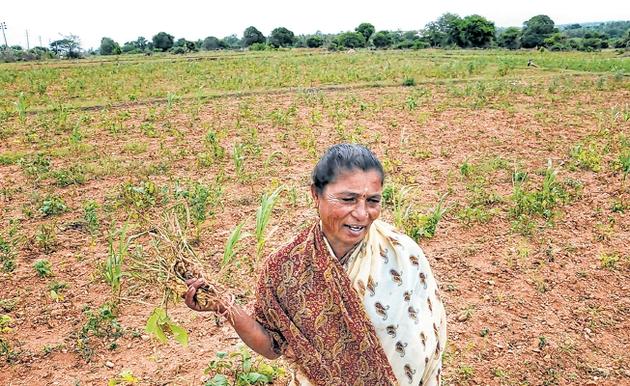
New Delhi, July 22: Drought conditions loom over south Karnataka and central Maharashtra adding to concern at the severely deficient southwest monsoon in parts of Rajasthan and Gujarat.
These States have been advised to go for early rabi (winter) plantation to make up for the shortfall in kharif sowing. Much will depend on the progress of the monsoon in the last week of July.
With an average 40 per cent deficiency in monsoon rain in the northwest so far, farmers in paddy-growing Punjab and Haryana are stressed due to the higher cost of cultivation. As water levels in the Pong and Bhakra dams are below normal, farmers in these States are using excessive power and diesel to draw groundwater to save kharif paddy.
Alarmed at the situation, the Centre on Saturday convened a meeting of the affected States, including Karnataka, Maharashtra, Rajasthan, Punjab, Haryana and Gujarat. What triggered the move was the grim situation. Two-thirds of the kharif sowing period are already over.
Now only late varieties or short-duration crops or fodder can be sowed to save farmers in the affected States. What hits them most is that the credit/loan they take for normal sowing cannot be returned if they fail to sow. If they go for renewed sowing of contingency crops, they will have to seek a fresh loan.
Agriculture Secretary Ashish Bahuguna, who convened the meeting with the Principal Secretaries of the six States on a non-working day, said he reviewed the situation with the States that faced “contingency.” The situation is worst in Karnataka, where sowing of coarse cereals, pulses and oilseeds has been hit. The monsoon has bypassed large tracts of the State where these crops are raised. Kharif sowing is short by 10 lakh hectares, mostly in coarse cereals and groundnut, in the State.
In the Pune-Sholapur-Sangli-Satara belt of Maharashtra, rainfall deficiency has severely hit the sowing of pulses and coarse cereals. About 8.5 lakh hectares remained unsown. These districts have been advised to go for early rabi sowing of guar, gram and maize to make up for the shortfall.
In Rajasthan, monsoon has been delayed in the western districts and jowar and bajra sowing on nearly 15 lakh hectares has been affected.




Comments
Add new comment